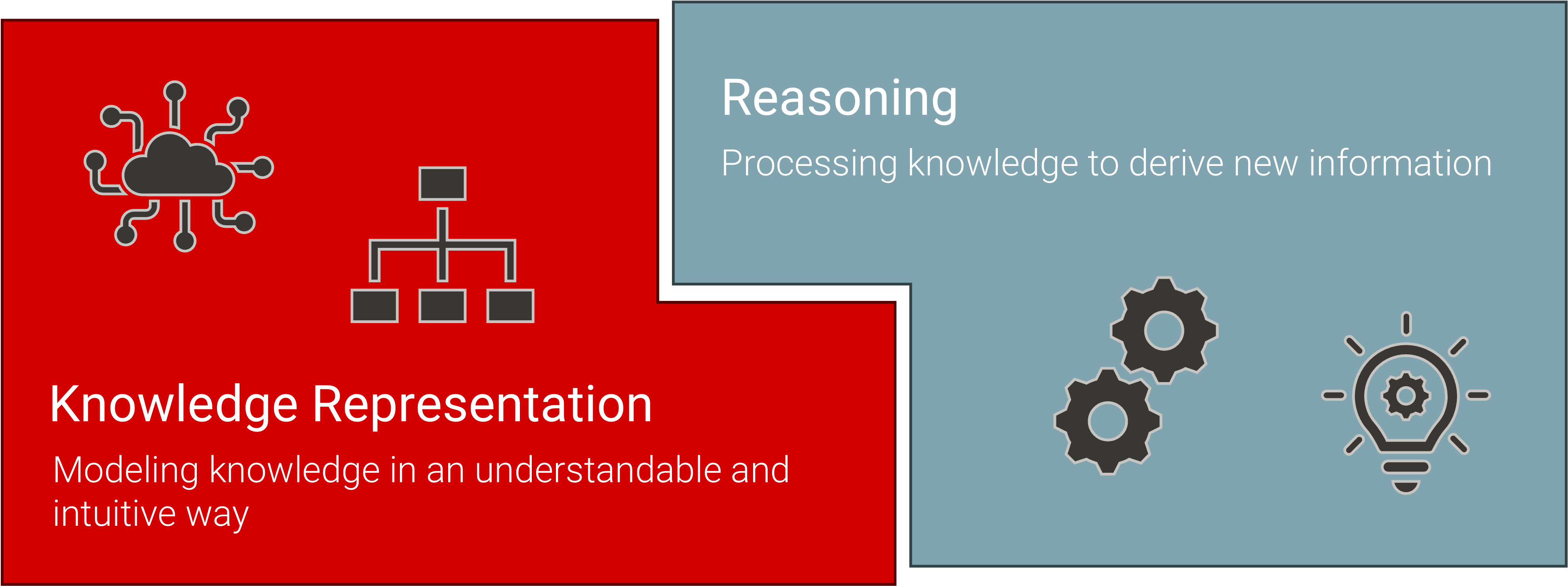Knowledge Representation and Reasoning
Representation of knowledge in a suitable form and methods for reasoning from a given knowledge base are at the core of any knowledge-based system. Our research deals with a variety of issues in this context, among them descriptions logics, rule-based languages, modal logic, nonmonotonic and preferential reasoning, abductive and diagnostic reasoning, and explanation finding.

Description Logics
Description logics (DLs) are a well-established family of logic-based languages that are used to formally represent and reason about the knowledge in some application domain.
A DL knowledge base formally defines the objects and concepts that exist in the domain as well as the relationships that must hold between them. We can then use these knowledge bases to formally deduce new information about our domain. DLs have been successfully applied across many fields, most notably as the foundation for popular ontology languages like the Web Ontology Language (OWL).
In our group, we explore computational properties of various extensions to standard description logics as well as their connections to other popular formalisms, such as SHACL.
Rule-based Languages
Rule-based languages emphasize declarative programming over procedural instructions, allowing developers to focus on what the system should do rather than how it should do it. The expressiveness of such languages ranges from general programming to combinatorial problem solving or database queries. Studying theoretical properties and potential extensions of rule-based languages are important research topics.
Modal Logics
Modal logics extend propositional and first-order logic by introducing modal operators to capture notions of necessity and possibility. This provides a balance between expressiveness and computational complexity in representing and reasoning about concepts such as knowledge, belief, moral obligation, temporal information, and actions. In particular, we use modal logics to model agents’ partial knowledge and uncertainty about the object of interest—such as a black-box classifier and its explanations.
Nonmonotonic and Preferential Reasoning
In real-life situations, conclusions may need to be revised in light of new information. Unlike classical logic, which assumes conclusions are fixed once made, nonmonotonic reasoning allows for the withdrawal of conclusions when conflicting additional data arises. Preferential reasoning adds a ranking of possible outcomes or conclusions, prioritizing those that are more plausible or preferable based on given criteria or context.
Abductive Reasoning and Explanation Finding
Abductive reasoning seeks the most plausible explanation for a set of observations, it is thus also sometime described as reasoning to the best explanation. It differs from other forms of reasoning by starting with an outcome and working backward to identify likely causes and emphasizes generating and evaluating hypotheses that best account for the evidence available. Research in this direction includes applying abductive reasoning for diagnosis or explanation of automated systems or other formalism and studying the computational properties of those particular reasoning problems.
